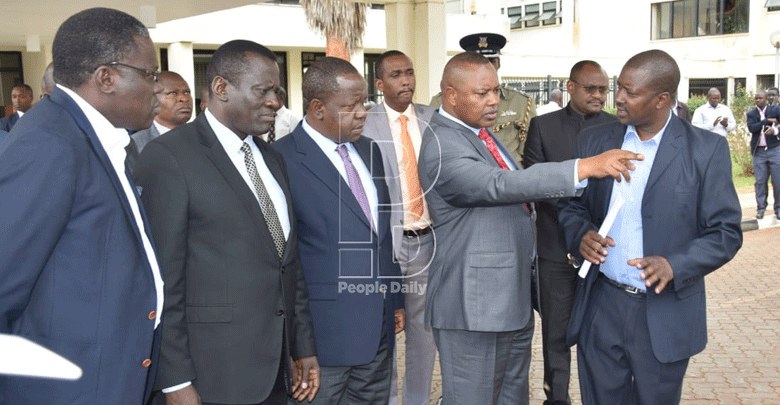Restructuring at DCI targets specific crimes
By Zadock Angira, January 21, 2021The Directorate of Criminal Investigations (DCI) has been restructured to deal with specific crimes. Among the areas affceted are fraud, counterfeit goods and terror.
Apart from the traditional units like Forensics, other units have been formed to confront emerging crime trends.
Changes in the National Police Service Standing Orders are contained in the Special Issue of the Kenya Gazette dated December 10, 2020.
The Parklands-based Anti-Counterfeit Investigations Unit has been established to, among other things, investigate cases of proliferation of counterfeit goods in the country and deter importation of such goods.
The unit, headed by David Chebii, is expected to work closely with the Kenya Bureau of Standards to rid the country of the manufacture and sale of counterfeit goods.
Following a surge in land fraud cases in the country, the Anti-Land Fraud Unit, tasked with investigating land fraud cases has also been revamped and additional 26 detectives transferred to the unit to tackle persistent land issues in the country.
The unit is to to liaise with the National Land Commission to, among other things, recover public land acquired illegally.
DCI boss George Kinoti said he had sanctioned far-reaching reforms in the unit by, among others, deploying the detectives with professional background in land survey, land economics, land physical planning and administration among other relevant fields.
“This move is meant to inject new blood and professionalise the unit, to undertake investigations of land cases that are complex in nature,” he said.
He added the detectives who were carefully selected and vetted, possess the requisite skills relevant to the investigation of frauds related to land. “They will enhance the unit’s capacity to investigate land cases expeditiously and advise on the appropriate legal action to be taken. These reforms have been made ahead of the roll out of the new lands digital migration program,” he said.
The Anti-Terrorism Police Unit has been renamed the Terrorism Prevention and Investigations Unit (TPIU) whose mandate will to prevent, detect and disrupt terrorist activities in the country.
TPIU is also responsible for investigations of terrorism and related cases, sharing intelligence with other security agencies, maintaining profiles of suspected terrorists among other functions.
It will work closely with another unit, the Regional Counter Terrorism Centre of Excellence, which will is involved in research, analysis and timely dissemination of counter-terrorism related intelligence and also counter-terrorism operations.
Policing strategy
The Anti-Narcotics Unit, apart from investigations of drug-related offences, will also be expected to disseminate drug intelligence to other law enforcement agencies locally and internationally.
One of the most important units within the DCI is the Crime Research and Intelligence Bureau (CRIB) that is expected to facilitate intelligence-led policing strategy.
CRIB oversees and coordinates matters related to criminal intelligence; evaluate, analyze and disseminate criminal intelligence received from the field; and also to establish and maintain a criminal record data bank. It also provides liaison to the service and other law enforcement and intelligence agencies.
Another core unit is the Forensic Science Unit that provides photographic, ballistic, and explosive response management services.
The unit is also involved with document examination services; finger, palm and foot print identification services; crime scene support services; and also maintaining criminal records.
More Articles

